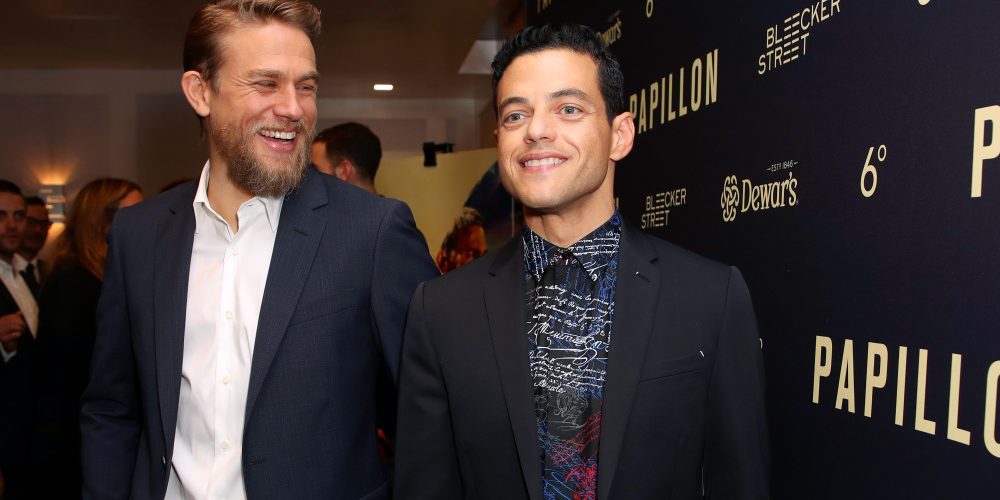Charlie Hunnam and Rami Malek’s ‘Papillon’ Is “Somewhat of a Love Story”
Variety.com — When the autobiographical novel “Papillon” was published in France in 1969, it was hailed as “the greatest adventure story of all time” — and that description set the tone of the 1973 film adaptation starring Steve McQueen and Dustin Hoffman as two prisoners trying to escape a penal colony in Guiana.
But Michael Noer, the Danish director of a new remake starring Charlie Hunnam and Rami Malek taking on the parts played by McQueen and Hoffman, respectively, says he had more than an action/buddy movie in mind while shooting the real-life drama about Parisian safecracker Henri “Papillon” Charrière (Hunnam), who was framed for murder and formed an unlikely friendship with counterfeiter Louis Dega (Malek) while planning his escape from the penal colony in the 1940s.
Noer envisioned an unlikely love story of inmates-turned-soulmates.
“That was the first thing I wrote on the side of the pages as I was skimming through the script: The chance to make not only a film about friendship but also a film about love,” Noer told Variety on Sunday night before a screening at the London West Hollywood hotel. “Because in friendship you can say that you’re bound only to a certain extent, but in love, you’re bound good and bad. You can hurt each other much more than you can just in a friendship. It starts off with they detest each other, [then] try to build a friendship and at the end, I’d say that they’re molded together into one. This is told through the lead, Charlie, and Rami, as supporting, but they’re both extremely important in creating this bond. Because I truly believe that they are one.”
Granted, heads do roll in “Papillon” (French for butterfly) due to the guillotine, but more importantly, hearts flutter between the co-stars.
“One thing Charlie and I looked at [was] ‘You know, we could do a prison escape movie, which is entertaining, and that’s the deal here — we have to entertain — but at the same time to have something going on where two human beings are searching for themselves and [it’s] somewhat of a love story,” Malek said. “The desire and need to be with one another, to overcome certain aspects of themselves, and to discover what it is to have hope and joy.”
While Noer doesn’t shy away from sex, as well as affection, between male convicts, it’s not quite a tropical “Brokeback Mountain” either. Hunnam, however, appreciates his director’s description as a love story between two men.
“I think that’s really accurate,” he said. “For me, what I’ve always been very interested in is the human condition and how we overcome adversity in our lives. Because as all of the religious teachers have taught us: We’ll have to encounter enormous hardship and tragedy and injustice and disappointment and, you know, broken hearts in our lives. That can become overwhelming — I feel that very acutely in society now as much as, if not more than, ever.”
“The question is: How do you weigh the balance?” Hunnam added. “And so I thought this was a really interesting and grand backdrop to explore that fundamental question: How do you make life make sense in the face of the inevitable, axiomatic rule that life is suffering? And so it’s about friendship and belief and faith and love. Those things — like community and friendship and within that, the love that comes — is of paramount importance. And ultimately that’s the message of this film.”
As it turns out, the male bonding blossomed into bromance off the red carpet, too: Before taking his seat in the front row of the theater, Malek couldn’t resist spanking his co-star on the bum.

